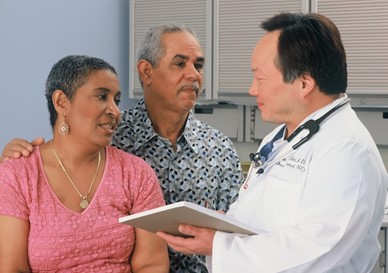Yacin Zawam of Northwest Arkansas works as an internist, who enjoys helping his patients stay well. In the following article, Yacin Zawam discusses the important health screenings to consider in varying stages of life, why these screenings are important to staying well, and how early diagnosis can save lives.
If the body is a temple, consider health screenings to be upkeep.
Preventative care through health screens can lower the rate of seven out of 10 deaths in the U.S. caused by chronic disease. And health screenings are far from being only useful for older people or those who are sick.
Instead, there are several key health screenings to undergo at many different life stages. On average, health screenings and consultations have been linked to higher life expectancies, especially for those between the ages of 30 and 50 years old.
Yacin Zawam says that the path to a lifetime of good health comes with several vital screening stops along the way.
Yacin Zawam on Priority Health Assessments
Doctors typically consider annual check-ups or physicals with a primary care physician to be a form of health screening. These screenings take a look at blood pressure, weight, and height. Some include vaccines, blood tests, and/or EKGs.
And while not all health screenings need to be done annually, there are many tied to a specific point in one’s life, explains Yacin Zawam of Northwest Arkansas.
Age Range: 18-39
When a person ages into their 20s, doctors recommend a check on cholesterol. After that, cholesterol checks are typically done each year after a patient turns 35.
However, while those at higher risk for high cholesterol often need to schedule a yearly check, if someone is considered in good health, cholesterol is usually monitored every five years.
Yacin Zawam of Northwest Arkansas says that other health screenings in this age group include pelvic and breast exams for women, a testicular exam for men, and skin tests to look for lesions or abnormal moles that are typically tied to forms of skin cancer.
Women in their 30s may also consider a thyroid-stimulating hormone test to look for an overactive or underactive thyroid and to consider screening every couple of years.
Additionally, Yacin Zawam of Northwest Arkansas reports that women in this age range should get a pap smear to test for cervical cancer risks every 3 years, more often if in a high-risk category. Both men and women should get a hearing test while in their 20s and then one every 10 years.
Eye exams that test not just vision but signs for macular degeneration and glaucoma should be completed every 1 or 2 years starting in one’s 20s.
Age Range: 40-64
Yacin Zawam of Northwest Arkansas says that when a person hits 40, there is a greater need for health screenings related to serious chronic conditions. Medical professionals recommend annual mammograms for women at 40, though women with a history of breast cancer in the family often start these screenings earlier.
Prostate screenings should begin for men when they turn 50, but they can also start earlier if a family history necessitates. Women in their 40s can begin screenings that look for ovarian cancer signs and then get subsequent screenings every three years when they are post-menopausal.
In this age range, diabetes becomes a common concern, so individuals should consider annual blood sugar level screenings during this time. Colonoscopies should begin for both men and women at the age of 45, according to Yacin Zawam of Northwest Arkansas.
If tests are normal, such screenings may just need to be done every 10 years or so. Early signs of colon cancer can also be detected through a yearly fecal occult blood test if a doctor finds this necessary.
65 and Older
Bone density studies for men and women should start at 65 and then be completed every 2 to 5 years. Those with higher risks may consider starting the screening when they turn 60.
Yacin Zawam of Northwest Arkansas explains that this is also the average age when shingles and pneumococcal vaccinations are given, and the pneumonia vaccine may be given every five years for those with risk factors or certain medical conditions.
Additionally, those who fall into this age range benefit from general checkups to measure weight or height – this becomes even more important since both can provide a window into possible signs of such chronic conditions as osteoporosis.
Other Annual Screenings by Age
18-39
Many people in this age range tend to not prioritize yearly health screenings because of busy schedules, cost, or because they are often in good health. But Yacin Zawam of Northwest Arkansas explains that in addition to the common blood pressure and cholesterol checks, doctors also recommend historical family illness screenings and a depression screening.
40-64
Lung cancer screenings are recommended annually for those who are current or former smokers.
65 and Up
Further mental health assessments, the high dose flu vaccine, and a fall prevention screening.








